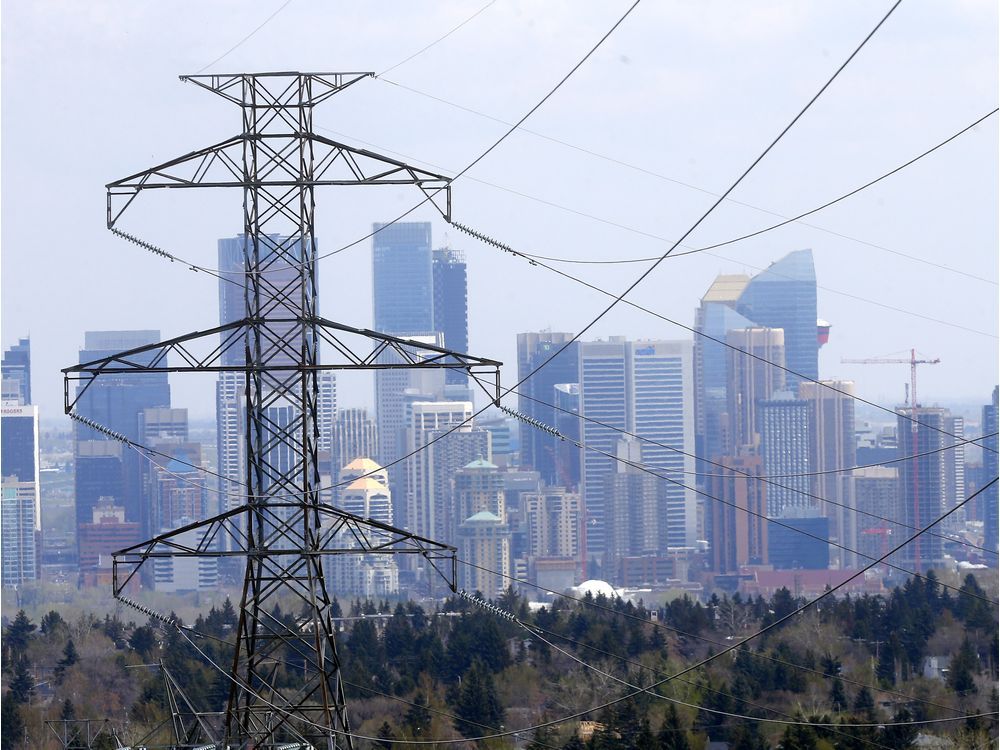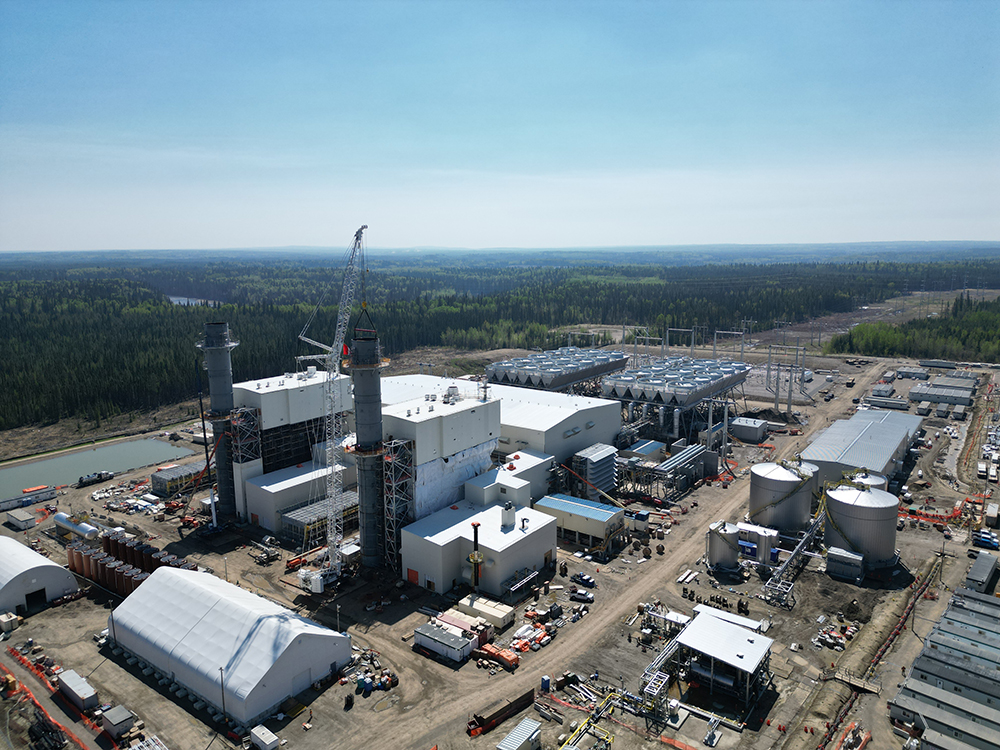|
|
|
You are using an out of date browser. It may not display this or other websites correctly.
You should upgrade or use an alternative browser.
You should upgrade or use an alternative browser.
- Thread starter Alex_YYC
- Start date
darwink
Senior Member
Not in response to legitimate concerns. It is redirecting anger for prices towards energy sources which they don't have political connection to in the minds of their base.
Prices are up because the behaviour of large generators changed due to a change in the market due to the end of power purchase agreements. This would have been fine if there was a better default option for consumers, like the government having PPAs for every account's first 500 kw's a month and the government bidding those into the market at zero (the market behaviour of the old PPAs) and/or then having the first 500 kw be at the average costs of the PPAs to the government.
The government is actually making tons of money from renewable PPAs the NDP signed, at the very least those profits should be used to defray the RRO price.
Prices are up because the behaviour of large generators changed due to a change in the market due to the end of power purchase agreements. This would have been fine if there was a better default option for consumers, like the government having PPAs for every account's first 500 kw's a month and the government bidding those into the market at zero (the market behaviour of the old PPAs) and/or then having the first 500 kw be at the average costs of the PPAs to the government.
The government is actually making tons of money from renewable PPAs the NDP signed, at the very least those profits should be used to defray the RRO price.
adamyyc
Active Member
I work in the renewables (and O&G) industry, so I will chime in with my opinion. I think that if the outcome of this pause results in allowing for renewable development on Crown land, protections for high value agricultural and environmental land, and a standardized minimum reclamation security requirements, it will be worth while.The Province is pausing approvals on all new renewable projects effective immediately. Is this in response to legitimate concerns, or just the Province pandering to climate change denying rural Albertans. Article
Right now, renewable development cannot occur on Crown land. A lot of the best wind and solar resources are in areas predominantly in Crown area (e.g., Special Areas). Because those areas have limited freehold land, a lot of that freehold land (which is generally in populated areas) is being developed for renewables. These freehold lands are also often the best agricultural land in the areas (because people invest in inputs on the land they own, not the Crown land they lease).
Municipalities have expressed concerns about loss of good Ag land. If restrictions are put in place to protect certain Ag land, I could see a lot of companies being out money on Options to Lease that they signed with landowners.
Consistent minimum reclamation security obligations for developers will also provide landowners and munipalities with assurances that projects will be properly decommissioned and reclaimed (which frankly, shouldn’t be that much of a concern because there is a lot of value in the material removed from decommissioned renewable facilities). I think this will also prevent municipalities from imposing unrealistic obligations during the development permit approval phase. Unfortunately, a lot of municipalities are not equipped to review these DP applications and don’t fully understand the development, so the conditions often vary wildly. It would be great if there was a consistent bylaws across the province. I will say that landowners are already protected because they have to agree to sign an agreement, they can’t be expropriated for renewable projects, so they can negotiate the best reclamation security they can get out of a company and choose whether to sign or not.
There is also a lot of issues with connection to the grid, and whether it makes sense to take up capacity on the grid to connect these intermittent power sources. The province is going to need a lot of investment in storage in addition to transmission.
Ultimately, I think this pause will drive out a lot of the smaller players, but should hopefully result in a more organized development of renewables, rather than the Wild West it currently is. I’d liken it to the approach the province is taking with CCUS.
adamyyc
Active Member
For interest, here is the press release from the Canadian Renewable Association (CanREA) on the AUC's announcement: https://renewablesassociation.ca/alberta-market-at-risk-without-swift-resolution-to-moratorium/
DougB
Active Member
Should government be in the commodity trading business? If the market price had been below the auction price of the PPAs, the government would have lost money.Not in response to legitimate concerns. It is redirecting anger for prices towards energy sources which they don't have political connection to in the minds of their base.
Prices are up because the behaviour of large generators changed due to a change in the market due to the end of power purchase agreements. This would have been fine if there was a better default option for consumers, like the government having PPAs for every account's first 500 kw's a month and the government bidding those into the market at zero (the market behaviour of the old PPAs) and/or then having the first 500 kw be at the average costs of the PPAs to the government.
The government is actually making tons of money from renewable PPAs the NDP signed, at the very least those profits should be used to defray the RRO price.
The Province need to make a lot of profit off these PPAs to net out the loss of $1.8-2B by enacting policy that allowed contracted generators to hand their PPAs back to the Balacing Pool:

Varcoe: $1.8B and growing — cost to Alberta consumers from power contract fiasco mounts
Losses at Alberta’s Balancing Pool from the controversial power purchase deals have now topped $1.8 billion, but the bleeding is finally slowing — just as the new K…
Mountain Man
Senior Member
When you say Crown Land, do you mean Federal or Provincial? Federal I can understand, Provincial I only see as pandering to climate change denying farmers (UCP base).
adamyyc
Active Member
I’m referring to Provincial Crown land. There is currently no way to apply and obtain Crown dispositions for renewable projects, like there is for oil wells, pipelines, pump/compressor stations, oil sands sites, etc.When you say Crown Land, do you mean Federal or Provincial? Federal I can understand, Provincial I only see as pandering to climate change denying farmers (UCP base).
There is low quality cultivated Crown Ag land that could be utilized for solar/wind.
I could also see opportunities to utilize abandoned Crown O&G sites for wind.
DougB
Active Member
Crown land is provincial as per the Canadian Constitution, despite the wishes of the federal Liberal Party. Alberta has more federal crown land than any other province due to its large national park area, and the huge Cold Lake AFB and Primrose Lake weapons testing area. I doubt any renewable energy projects would be proposed for a national park. I'm unsure what jurisdiction provinces carry over development of military bases. There was a court decision in about the 1970s that awarded mineral rights on military bases to provinces. The Suffield base, for example, has had huge natural gas production, mostly by Ovintiv (former Encana, former Alberta Energy Corporation). Cenovus and Imperial produce oil from the Cold Lake base. I'm unsure if wind and solar are legally considered to be natural resources and hence provincial jurisdiction.
I would think the Suffield base would have high wind and solar potential and practically no agricultural potential.
Another complication might be that development of Crown land is subject to Indigenous consultation, whereas that of privately held land is not.
I would think the Suffield base would have high wind and solar potential and practically no agricultural potential.
Another complication might be that development of Crown land is subject to Indigenous consultation, whereas that of privately held land is not.
Last edited:
DougB
Active Member
Tying rural NIMBYism to the tired "denier" trope is pointless.When you say Crown Land, do you mean Federal or Provincial? Federal I can understand, Provincial I only see as pandering to climate change denying farmers (UCP base).
With the pipeline of already approved projects, AESO is probably approaching not only over-supply but also the limit of intermittent generation that makes sense. Regardless, I would rather see the market make that determination rather than activists, civil servants or politicians.
The enormous Cascade combined cycle gas plant will soon be on-line:

Cascade Power Project
Your Content Goes Here Cascade is a high-efficiency, combined cycle natural gas-fired generating facility. Cascade Power Project is a 900 megawatt (MW) combined cycle power generation facility being constructed in Yellowhead County, approximately 12 kilometres southwest of Edson, Alberta. The...
darwink
Senior Member
That opens up a huge kettle of fish.There is low quality cultivated Crown Ag land that could be utilized for solar/wind.
darwink
Senior Member
Yes, or we need another solution for those who either can’t or lack the planning ability to get on a fixed contract.Should government be in the commodity trading business? If the market price had been below the auction price of the PPAs, the government would have lost money.
The Province need to make a lot of profit off these PPAs to net out the loss of $1.8-2B by enacting policy that allowed contracted generators to hand their PPAs back to the Balacing Pool:

Varcoe: $1.8B and growing — cost to Alberta consumers from power contract fiasco mounts
Losses at Alberta’s Balancing Pool from the controversial power purchase deals have now topped $1.8 billion, but the bleeding is finally slowing — just as the new K…calgaryherald.com
CBBarnett
Senior Member
Even if there is legitimate concerns, I don't see a reason why you'd need to pause all approvals to reform the system. Regulatory systems are being tweaked all the time to address new and emerging issues but they don't stop approvals in the meantime.The Province is pausing approvals on all new renewable projects effective immediately. Is this in response to legitimate concerns, or just the Province pandering to climate change denying rural Albertans. Article
Can you imagine if Calgary paused all land use approvals because the city feels the land use bylaw is outdated? Has Alberta ever paused the regulatory approval process during an oil boom on oil infrastructure? Should we not allow new wells to be drilled because they haven't solved the orphan well liability issues?
Seems incredibly anti-business - you don't need to pause a process to make changes, if there are even changes to make.
adamyyc
Active Member
It’s definitely political, and Smith has admitted as much. Hopefully some good things come out of it and it’s not status quo afterwards.
ByeByeBaby
Active Member
I know there are a few people on here who are quick to talk about how important a stable regulatory environment is for the energy industry; I'm sure they'll be back from their summer holidays soon.
It seems odd to me that there is a bunch of land that is incredibly important for agriculture, the best agricultural land out there, that is the same land that is so cheap that you can put solar panels or windmills on it for a greater profit. I understand regulations protecting land that is important for the biosphere, because the plants and wildlife that use the land don't have money and can't outbid anybody. And I understand protecting land next to cities from residential development, because suburban/exurban residential development can outbid farmers, and because sprawl has bad side effects. But if the land is so cheap that the farmers make more money letting someone else slap a turbine on it, that seems to me to imply bad land or bad farmers or both, not a market failure that requires intervention.
It's also just a terrible economic move; not only killing investment in a growing sector, but doing so with no warning for political reasons to appease a base. Other industries have to be looking at this, and wondering what the rural halfwits giving marching orders think about financial services, or software development, or film production, or whatever else they're thinking of moving here. And unlike oil -- there's only a handful of jurisdictions who have oil to dig for -- everybody has sunlight or wind. Sure, we have plenty, but if/when we allow renewables in the future, we just became 10%+ more expensive perpetually because of the uncertainty associated.
It seems odd to me that there is a bunch of land that is incredibly important for agriculture, the best agricultural land out there, that is the same land that is so cheap that you can put solar panels or windmills on it for a greater profit. I understand regulations protecting land that is important for the biosphere, because the plants and wildlife that use the land don't have money and can't outbid anybody. And I understand protecting land next to cities from residential development, because suburban/exurban residential development can outbid farmers, and because sprawl has bad side effects. But if the land is so cheap that the farmers make more money letting someone else slap a turbine on it, that seems to me to imply bad land or bad farmers or both, not a market failure that requires intervention.
It's also just a terrible economic move; not only killing investment in a growing sector, but doing so with no warning for political reasons to appease a base. Other industries have to be looking at this, and wondering what the rural halfwits giving marching orders think about financial services, or software development, or film production, or whatever else they're thinking of moving here. And unlike oil -- there's only a handful of jurisdictions who have oil to dig for -- everybody has sunlight or wind. Sure, we have plenty, but if/when we allow renewables in the future, we just became 10%+ more expensive perpetually because of the uncertainty associated.
jianxia15
Active Member

Amazonâs first Canadian wind farm project to be located in Alberta
The announcement on Thursday marks Amazon's fourth renewable energy project in Canada.




